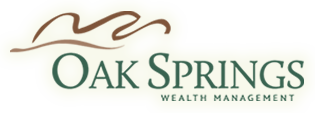This commentary is meant to be a reflection on the past quarter and expectations for the coming quarter and year. But in thinking back on the past year I am reflecting on the sudden loss of a very good friend and client. There was also good news just received that a client was winning her battle with cancer. Life is full of unexpected twists and turns. Hopefully, you have your helmets strapped on and are prepared for the year that is shaping up as an “E” ticket ride.
The fourth quarter of 2021 was driven by a new variant of COVID-19 and the Federal Reserve.
The latest variant is less deadly, more contagious but fewer hospitalizations. The “cron” may be just the thing to speed up a resistance to the virus in the general population.
The Federal Reserve spent most of 2021 talking about transitory inflation, believing that it was a short-term factor. As inflation continued to climb there was a modest acknowledgment that inflation was more long term but not really a problem. At the Fed’s December meeting the central bank threw in the towel and agreed with consumers buying food and gas that inflation was indeed a problem. The problem for the Fed is politics. The Federal Reserve performs best as a non-partisan committee of economists. Recent political pressure on the Fed has been to keep interest rates low and to continue buying U.S. debt in support of more government spending. New appointments by the Biden administration are expected to support that position. Statements by the Fed chairman that interest rates would be going up in 2022 were met with some skepticism. But the threat of increasing interest rates and a tightening of the money supply was enough to slow the bullish stock market run during the second half of the year.
The meeting notes from the Fed’s December meeting showed realization that the 7% inflation rate was a real thing and there needed to be a response. There was discussion of at least three interest rate increases, a halt to buying of U.S. treasuries and mortgage bonds and a reduction in the Fed’s debt portfolio. The stock market’s immediate response was a sell-off in the tech stocks.
The Fed’s announced intention to deal with inflation is about a year too late. The .75% increase in interest rates (3 hikes of .25%) would not touch the current inflation sweeping across all aspects of the global economy. The question is the actual health of the U.S. economy and whether it could deal with the impact of the closure of the liquidity faucet. The Fed’s history of always being wrong is too well documented to allow resting easy that all will be okay. There is the real threat that interest rate increases would tip the economy into a recession.
So, what is going on with the U.S. economy? Unemployment for the month of December dropped below 4%. Open jobs remain above ten million. Many businesses are operating at half speed due to worker shortages. Supply chain issues have only slightly improved. Covid is still preventing some workers from returning to the office and kids to the classroom. And inflation is driving up the cost of everything.
Much of the 2021 growth in the stock market was driven by the tech sector. Fewer than ten stocks accounted for the growth in the broader S&P. Primarily tech stocks. Rising interest rates are bolstering financial stocks. The political decision to curtail energy production in the U.S. is pushing up energy stocks. Commodities have been strong but could be affected by a recession. Real estate continues strong, but it remains to be seen how rising mortgage rates will affect the residential market. Areas of the U.S. will continue to see home prices strong as residents of primarily blue states flee to red states. Multifamily housing remains strong.
The Biden administration push for new regulations, tax increases and socialist government spending appear to have hit a brick wall. There is a mid-term election coming in November and that will have an impact on what politicians will be willing to openly support. Early expectations are Republicans will retake the House of Representatives and the Senate. The market loves divided government.
The Oak Springs portfolio is in a defensive posture. We are over invested in financials, energy, commodities gold and real estate. We have increased our exposure to the European market that has lagged the U.S. Growth stock exposure has been reduced. There is no exposure to the emerging markets which have become overweighted to Chinese stocks. The emerging markets will have a tougher time with their debt repayments if the dollar gains strength with interest rate increases.
Categories
Archives
- July 2025
- April 2025
- January 2025
- October 2024
- July 2024
- April 2024
- January 2024
- October 2023
- July 2023
- April 2023
- January 2023
- October 2022
- July 2022
- May 2022
- January 2022
- October 2021
- July 2021
- January 2021
- October 2020
- April 2020
- January 2020
- October 2019
- July 2019
- April 2019
- January 2019
- October 2018
- July 2018
- April 2018
- February 2018
- October 2017
- July 2017
- April 2017
- January 2017
- November 2016
- September 2016
- July 2016
- May 2016
- February 2016
- January 2016
- December 2015
- November 2015
- November 2014
- August 2014
- July 2014
- June 2014
- May 2014
- April 2014
- March 2014
- October 2013
